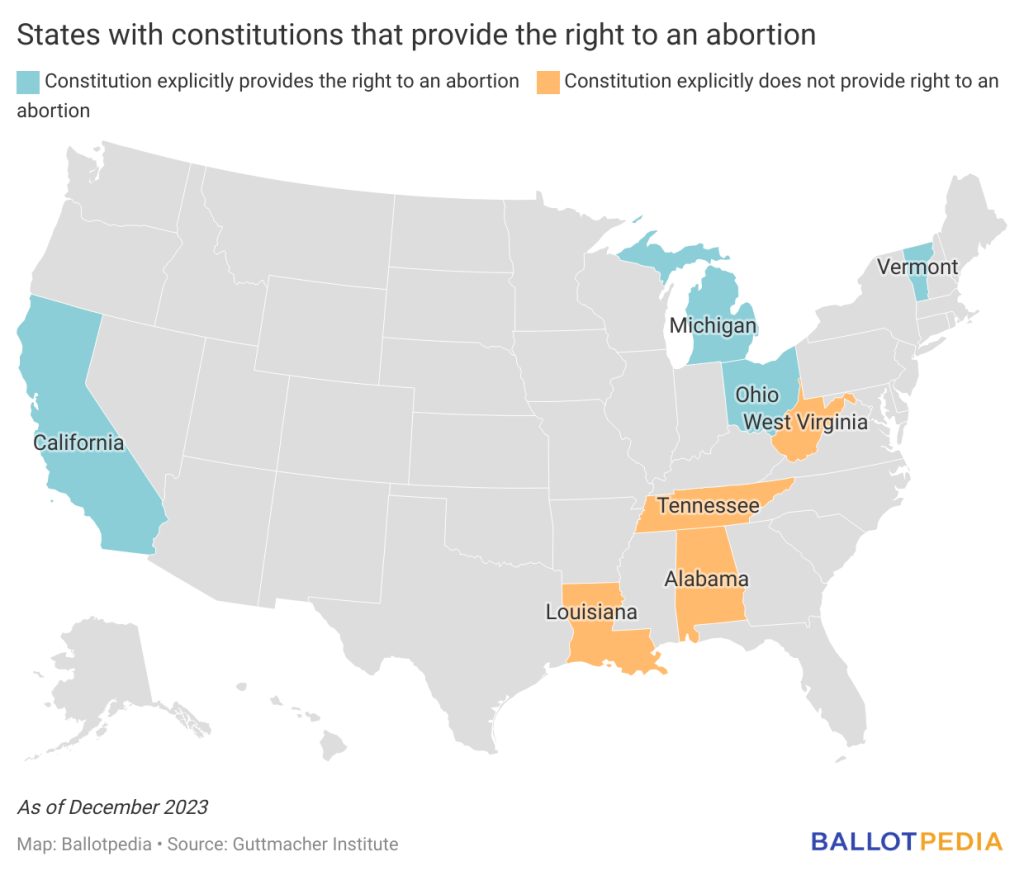Four states—California, Michigan, Ohio, and Vermont—have constitutions that explicitly provide for a right to an abortion. Most recently, Ohio voters approved Issue 1 on Nov. 7, 2023, which established a state constitutional right to “make and carry out one’s own reproductive decisions,” including decisions about abortion, contraception, fertility treatment, miscarriage care, and continuing pregnancy.
Following the U.S. Supreme Court’s decision in Dobbs v. Jackson Women’s Health Organization, which found there is no federal constitutional right to abortion and overruled Roe v. Wade, voters in three states—California, Michigan, and Vermont—approved ballot measures to include the right to an abortion in their state constitutions.
Twelve other states—Alaska, Arizona, Florida, Illinois, Kansas, Massachusetts, Minnesota, Montana, New Jersey, New Mexico, North Dakota, and Oklahoma—have had state supreme court decisions that have blocked abortion bans or certain restrictions based on the rights within their state constitutions. The rulings have cited either the right to privacy in state constitutions, interpretations of personal autonomy, violations of equal protection, or otherwise finding that the state constitution prevents the state from banning abortion to preserve life or health.
Four states—Alabama, Louisiana, Tennessee, and West Virginia—have state constitutions that say that the constitution cannot be interpreted to provide a right to an abortion. Voters in Tennessee approved the amendment in 2014, voters in Alabama and West Virginia approved these amendments in 2018, and voters in Louisiana approved the amendment in 2020. In 2022, voters in two states—Kansas and Kentucky—rejected this type of amendment.

In 2024, two states—Maryland and New York—will have constitutional amendments on the ballot providing a right to an abortion. Voters in Maryland will decide on an amendment to establish a right to reproductive freedom, defined to include abortion, and voters in New York will decide on a constitutional amendment to prohibit the denial of rights to any person based on their “pregnancy, pregnancy outcomes, and reproductive healthcare and autonomy,” along with other classes like ethnicity, disability, age, and sex.
Ten other states—Arizona, Arkansas, Florida, Iowa, Missouri, Montana, Nebraska, Nevada, Pennsylvania, and South Dakota—may also have abortion-related constitutional amendments on the ballot in 2024.
Additional reading:







